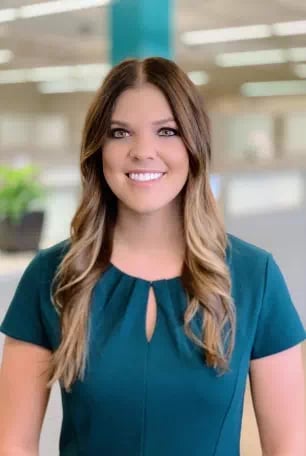Nonprofit Accounting is Different: What You Should Know

Your nonprofit organization exists for one purpose: to raise funds that will be distributed to individuals and entities that have a specific set of needs. Because of your tax-exempt status and your mission, you must follow a distinct set of accounting practices. Like for-profit companies, you may have employees, acquire insurance, and build marketing campaigns. You send invoices and pay bills, perhaps manage inventory and payroll, and create reports. One of the biggest differences between the two types of entities lies in the latter activity.
Both must provide financial statements. One of these is a Statement of Cash Flows, which both create. Two other reports, though, have different purposes and audiences. Where for-profit businesses generate a Balance Sheet, which lists assets, liabilities, and equity, your nonprofit prepares a Statement of Financial Position, which does not include the equity section. Instead, it has a net assets section. Rather than an Income Statement (Profit/Loss), you, as a nonprofit, are charged with creating a Statement of Activities. Both show income and expenses, but your income, of course, comes from activities like donations and fund-raising events instead of sales of products and/or services. You probably have similar kinds of expenses, like rent and office supplies, but your nonprofit must also account for your use of funds related to your organization’s mission.
Other Differences
Beyond the need for creating the correct reports, there are other things to know about nonprofit accounting. For example:- Though you don’t have to pay income taxes because of the tax-exempt status, you are still responsible for other kinds of taxes, like payroll, sales, and property.
- There are two types of functional expenses: support services and program services.
- You may have to declare unrelated business income if you receive funds not directly related to your charity’s cause.
Even though you’re referred to as a nonprofit, you are allowed to make a profit (have revenue exceed expenses).
Unfamiliar Territory
Most accounting software is built for generic, for-profit businesses. They are not designed to handle the reports that nonprofits need and are difficult to create on your own. For example, do you know the difference between unrestricted, temporarily restricted, and permanently restricted assets? This is one of the concepts you must understand to do the accounting for your nonprofit. It’s critical to have proper reporting. If you don’t, you risk losing your tax-exempt status. Your donors wouldn’t be able to deduct their contributions on their income taxes, and you’d have to pay your own taxes. If you have any questions, please contact us, or learn more about our nonprofit accounting and consulting services.
- Responsibility, Discipline, Maximizer, Harmony, Achiever
Lauren Duren
Lauren Duren, Client Advisory Services & Healthcare Director, began her career in 2012. Since she started as an intern with Lutz, she has developed comprehensive expertise in healthcare accounting and consulting while serving as the private practice department leader and contributing to the CAS policy committee.
Leveraging her experience in outsourced accounting and advisory services, Lauren focuses on independent medical practices. She provides strategic solutions, including provider compensation, revenue cycle optimization, and practice transition planning. Lauren values helping clients think through complex challenges to drive meaningful business improvements and develop strategies for long-term sustainability.
At Lutz, Lauren's discipline and focus enable her to deliver exceptional results in the healthcare sector. Her methodical approach to complex projects, combined with her commitment to quality technical support, has been instrumental in expanding specialized services for medical practices. Passionate about developing the next generation of talent at Lutz, Lauren also dedicates significant time to mentoring and training staff.
Lauren lives in Omaha, NE, with her husband Dylan, daughter Lilly, and their dog Blakely. Outside the office, she can be found spending time with friends and family, attending concerts, reading, cooking, and staying active through yoga and cycling.
Recent News & Insights
Financial Planning Advice for Recent College Grads
2024’s Hot Stocks Have Cooled Fast + 4.23.25
Do You Need a Family Office? 7 Aspects to Consider
Tariff Volatility + 4.7.25



.jpg?width=300&height=175&name=Mega%20Menu%20Image%20(1).jpg)
%20(1).jpg?width=300&height=175&name=Mega%20Menu%20Image%20(2)%20(1).jpg)
%20(1)-Mar-08-2024-09-27-14-7268-PM.jpg?width=300&height=175&name=Untitled%20design%20(6)%20(1)-Mar-08-2024-09-27-14-7268-PM.jpg)

%20(1)-Mar-08-2024-09-11-30-0067-PM.jpg?width=300&height=175&name=Untitled%20design%20(3)%20(1)-Mar-08-2024-09-11-30-0067-PM.jpg)
%20(1).jpg?width=300&height=175&name=Mega%20Menu%20Image%20(3)%20(1).jpg)
%20(1).jpg?width=300&height=175&name=Mega%20Menu%20Image%20(4)%20(1).jpg)
%20(1).jpg?width=300&height=175&name=Mega%20Menu%20Image%20(5)%20(1).jpg)
-Mar-08-2024-08-50-35-9527-PM.png?width=300&height=175&name=Untitled%20design%20(1)-Mar-08-2024-08-50-35-9527-PM.png)


.jpg)




